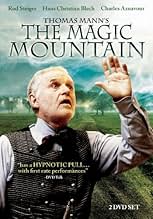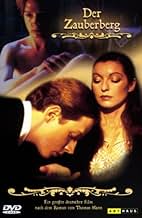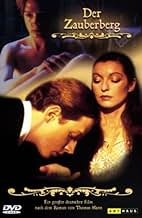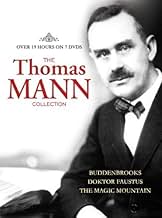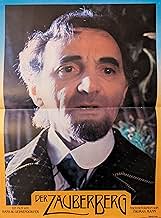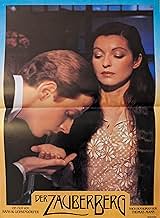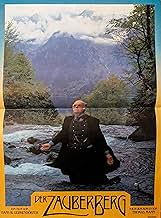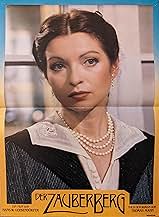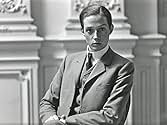अपनी भाषा में प्लॉट जोड़ेंHans Castorp, fresh from university and about to become a civil engineer, comes to the Sanatorium Berghof in the Swiss Alps to visit his cousin Joachim, an army officer, who is recovering th... सभी पढ़ेंHans Castorp, fresh from university and about to become a civil engineer, comes to the Sanatorium Berghof in the Swiss Alps to visit his cousin Joachim, an army officer, who is recovering there from tuberculosis. Intending to remain at the Berghof for three weeks, Hans is gradual... सभी पढ़ेंHans Castorp, fresh from university and about to become a civil engineer, comes to the Sanatorium Berghof in the Swiss Alps to visit his cousin Joachim, an army officer, who is recovering there from tuberculosis. Intending to remain at the Berghof for three weeks, Hans is gradually contaminated by the morbid atmosphere pervading the place. Wishing very much to be cons... सभी पढ़ें
- निर्देशक
- लेखक
- स्टार
- पुरस्कार
- कुल 3 जीत
- Narrator
- (वॉइस)
फ़ीचर्ड समीक्षाएं
The actors impressed me, with one exception. Christian Eichhorn was young and ardent as Castorp, Flavio Bucci extravagant and impassioned as Settembrini (just as I imagined him from the novel), and Rod Steiger tore a couple of scenes to tatters in an enjoyable way in the third and final episode. Marie-France Pisier is hardly a "listless, worm-eaten Kirghiz-eyed" woman as Mann describes her, but is always striking and lovely to look at. Only Charles Aznavour, badly miscast as Naphta, fails to impress the viewer. What were they thinking of, casting the hapless hero of Truffaut's Shoot the Pianist as a callous totalitarian philosopher?
Overall 5/10 Full review on movie-discourse.blogspot.de
Dismayingly, the Peeperkorn of Mann's novel is completely unrecognizable in the movie character. In the book, he is a larger-than-life charismatic figure who draws the other residents into his circle by the elemental force of his personality. In the movie, he is a sad and fearful old man, who feigns defiance of death in several over-wrought scenes not found in the book.
The movie also completely neglects important subordinate themes, such as the lure of Eastern passivity symbolized by Hans' infatuation with Madam Chauchat and her "Kirghiz" (Asian) eyes and exemplified by the sense of timelessness he feels at the Berghof. (This is another topic on which Settembrini frequently lectures young Hans.)
I enjoyed seeing the Berghof scenes brought to life, but, overall, I did not feel this was a successful film adaptation of Mann's book.
क्या आपको पता है
- ट्रिवियाLuchino Visconti had planned to film this novel in the 1960s.
- इसके अलावा अन्य वर्जनThe theatrical version is heavily cut to 153 min. The original version runs 312 min. and was shown in 3 part on television two years after the theatrical release.
- साउंडट्रैकO Haupt voll Blut und Wunden
Music by Paul Gerhardt
टॉप पसंद
- How long is The Magic Mountain?Alexa द्वारा संचालित
विवरण
- रिलीज़ की तारीख़
- कंट्री ऑफ़ ओरिजिन
- भाषाएं
- इस रूप में भी जाना जाता है
- The Magic Mountain
- फ़िल्माने की जगहें
- Chemin de la Source 3, Leysin, Canton de Vaud, स्विट्ज़रलैंड(Sanatorium Berghof)
- उत्पादन कंपनियां
- IMDbPro पर और कंपनी क्रेडिट देखें
बॉक्स ऑफ़िस
- बजट
- DEM 2,00,00,000(अनुमानित)
- चलने की अवधि2 घंटे 33 मिनट
- ध्वनि मिश्रण
इस पेज में योगदान दें


